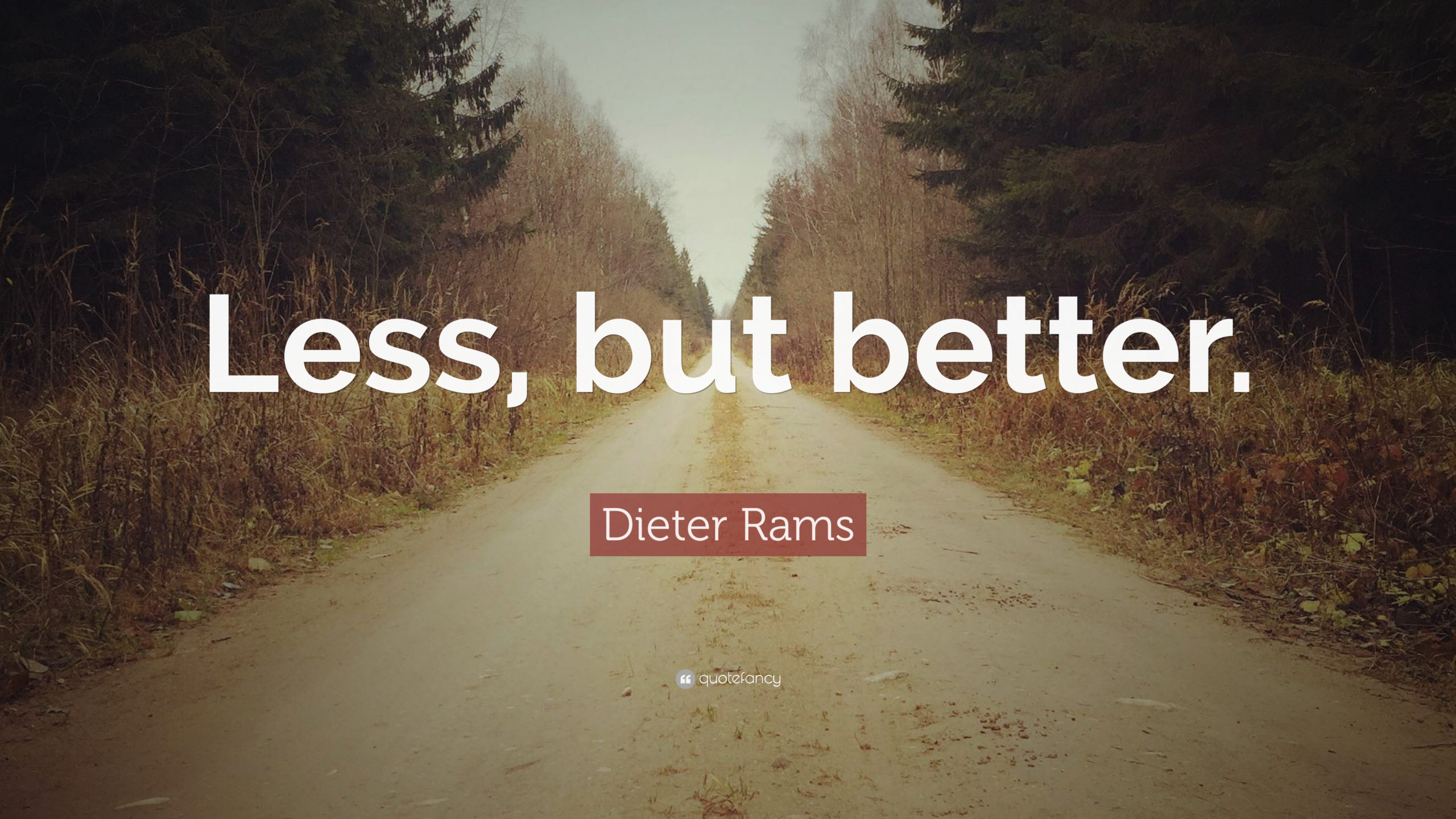
Going into the new year, one of my resolutions this year is to be stricter with myself about the “less but better” principle when it comes to striving for the bigger goals (whether it be in the practice room, the studio, or the gym). Ever since the pandemic started, my social media and email inbox has been bombarded with a crazy amount of (very valuable) information. It caused my attention to divert in too many different directions. I would rotate a few too many hats in a single day, convincing myself that I could somehow “do it all” – of course the reality is that everything comes at a cost.
Less But Better in Violin Practice
Here are two ways you can apply the “less but better” approach in violin practice. The first idea is to spend a session only on 2 or 3 phrases of music, but very deeply. Take the time to layer all the details: lock in rhythm, clean up intonation, plan out the bow distribution, dynamics, and articulation, etc. The second idea is to work on only one technique at a time. For example, we can choose to have an entire day devoted to intonation work but go through all (or most of) the repertoire we are working on. Personally, I’ve always enjoyed the 2nd method more as it prevented stress and burnout. However, this will probably be different for everybody, and also depend on what we are working on.
Sleep for Success
My second resolution actually has to do with maintaining something that I finally improved on in 2022. For the first time since I can remember, I had very few nights with poor sleep. This is something I am personally very proud of and would like to encourage you to pay attention to (if you’re not doing so already). Of course, great sleep isn’t always possible – especially for parents of newborns and young children. One thing that has been striking to me all year, is that almost every time I run into a colleague or close acquaintance at work, the small talk on their end has always been the same: “Good. Tired. So busy. You know how it is.” To them, this is normal. But being tired like this all the time is alarming to me. Over time, it lessens the quality of our work and/or our well-being.
Anders Ericsson Study
The importance of rest and recovery is included in psychologist Anders Ericsson’s famous 1993 study of violin players. Ericsson became popular as the “10,000-Hour-Rule” guy through Malcolm Gladwell’s book Outliers . His study showed that the best violinists not only logged in more hours than the average, but also put in very focused and deliberate effort on their path to mastery. This is the well-known part of the study, that has been celebrated and a source of inspiration to masses of people across many disciplines. The lesser-known part of the same study, which was the other big factor that set apart the best violinists, was sleep. “The best violinists slept an average of 8.6 hours in every 24-hr period: about an hour longer than the average American.” (McKeown, Greg. Essentialism . p. 97) They also indulged in regular afternoon power naps. Being better rested allowed them not only to practice longer but also to get the most out of those sessions, tap into their inner creativity, and make better decisions in the practice room as a result.
Unfortunately, in modern society, too many people take sleep for granted. Some even are fooled to believe that it’s something that can get in the way of success, with their minds poisoned with the idea that “one less hour of sleep = one more hour of productivity” when in reality that extra hour of sleep will add several hours’ worth of productivity, and of higher quality.
Some food for thought…
Whether you make resolutions or not, I wish for you a healthy, happy, and musical new year.

Mohammed Kébir says:
Thank you Inna for your insightful blogs and videos. I am reading each one of them and I always get new ideas and tips to improve my practice. I am also following you in Violympics and ToneBase. Such a wealth of knowledge!
I have always been struggling with setting achievable goals and I consistently set to many big goals, only to be disappointed for not achieving them. I like your idea of less but better. In fact, I relate this to today’s blog from Noa Kageyama on setting and achieving goals.
I did several attempts at working on Dounis exercises, (specially the ones on finger independence), but I found them so difficult, May be this comment relates to another article of yours).I gave up several times on them. I found Daniel Phillips’ course on ToneBase and I hope this will help me comme into terms with Dounis.
Continue providing us with good ideas on violin practice. Thank you
Inna Langerman says:
Thank you so much for your kind words! I very much recommend Daniel Phillips’ course. He was my teacher at Queens College and we worked on a lot of the same Dounis concepts explained in Tonebase. The approaches help to release excess tension and allows playing to feel more natural.